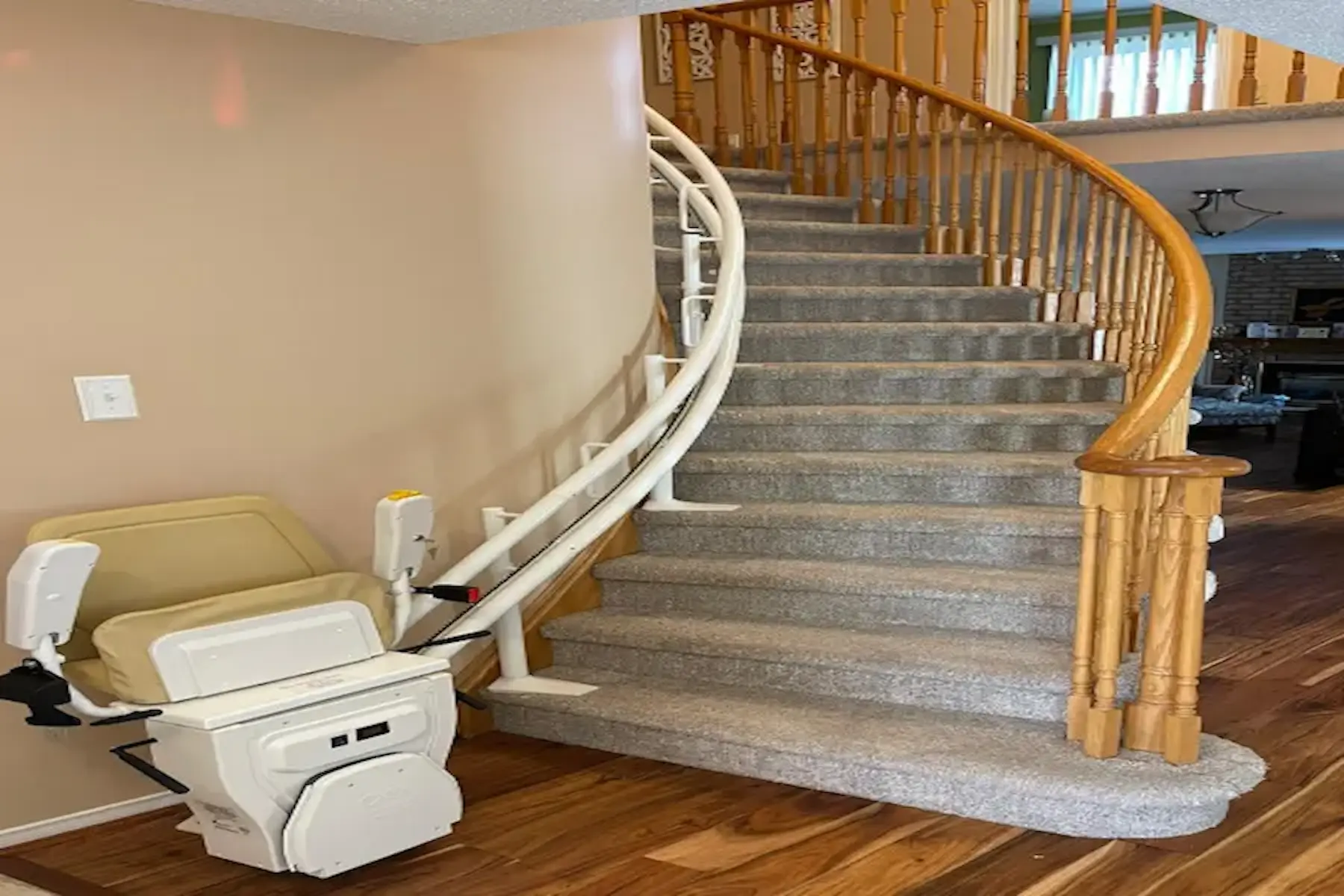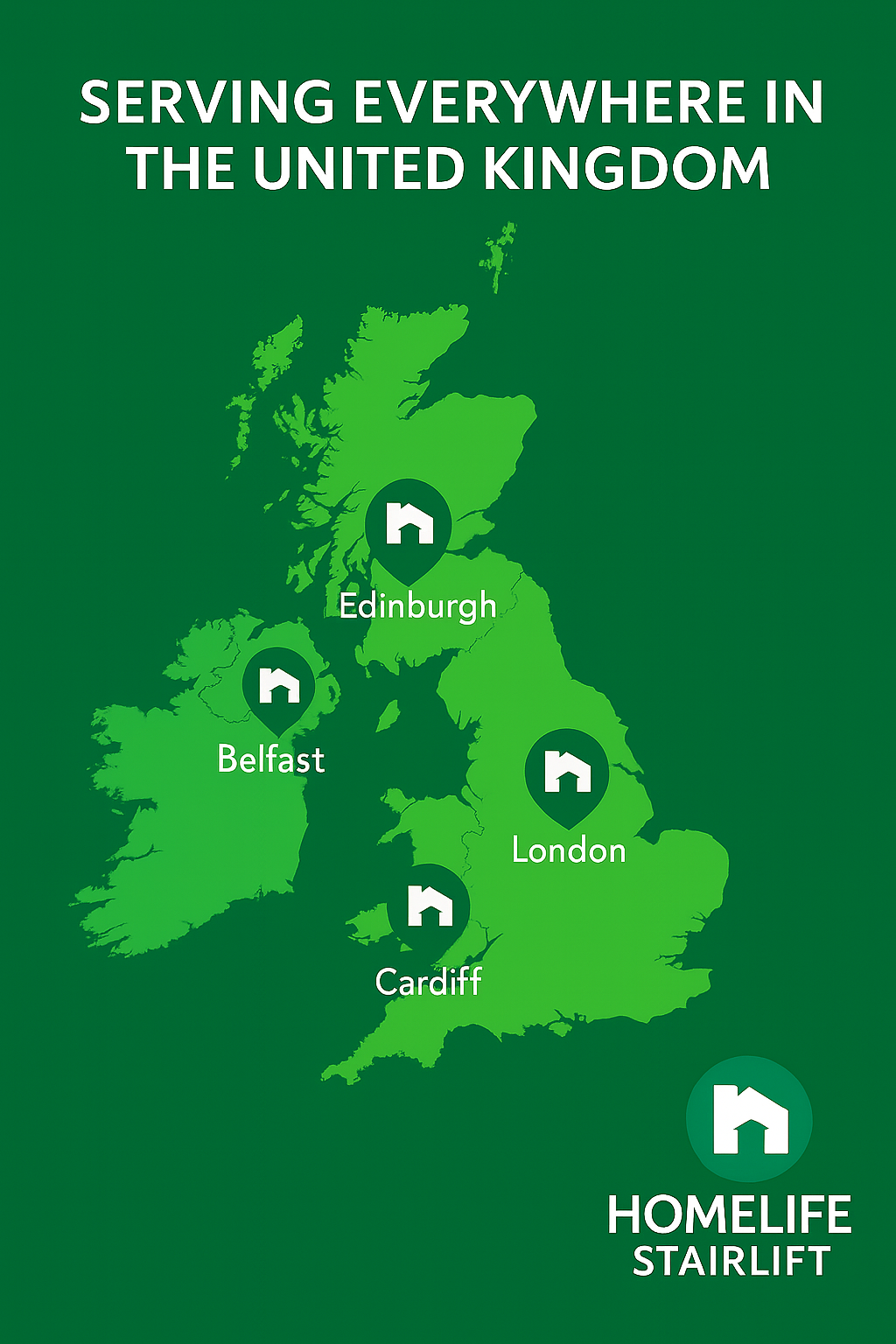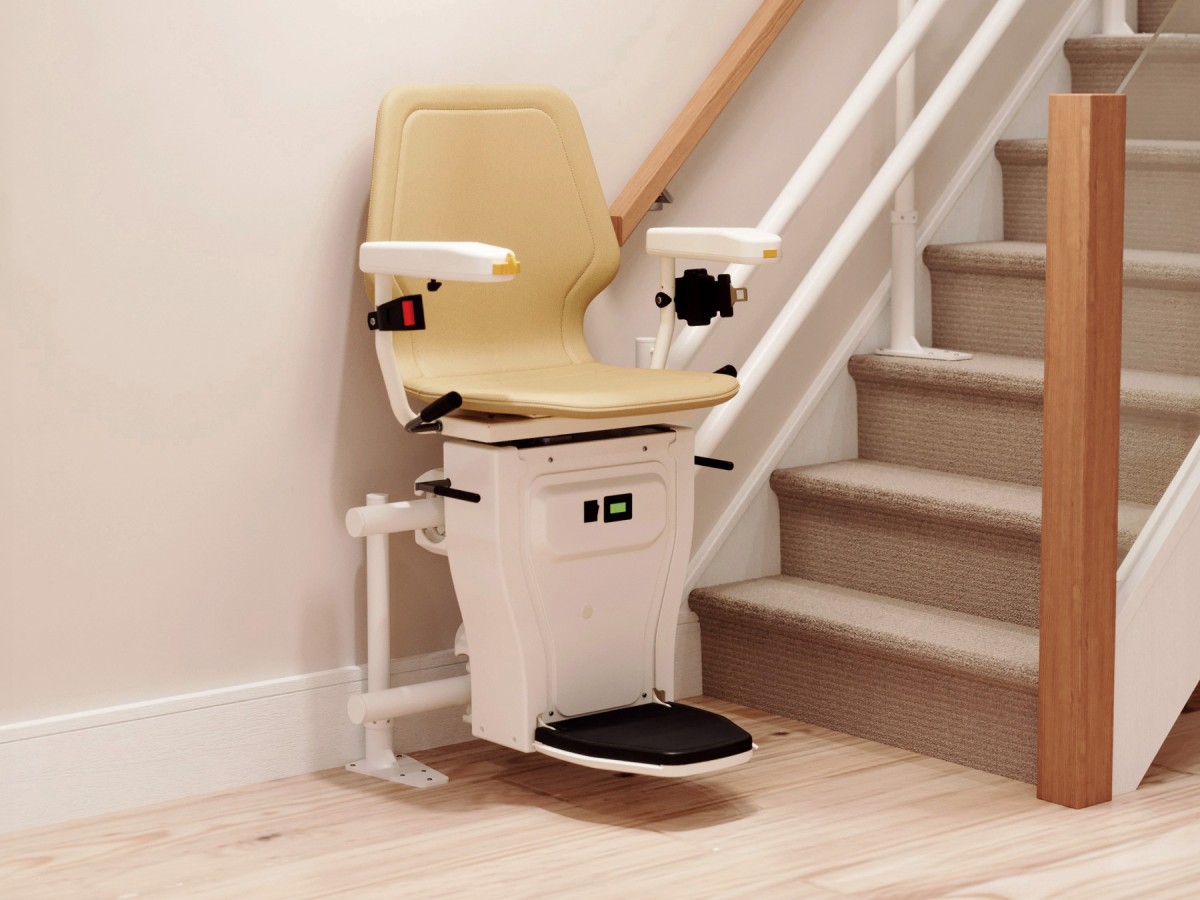What Are the Signs That You Might Need a Stairlift?

As we age, mobility often becomes more challenging. Stairs, once manageable, may begin to feel daunting or even dangerous. For many, the idea of a stairlift can seem like a big step, but recognising the signs you need a stairlift early can make your home safer, more comfortable, and more accessible. At Homelife Stairlift, we understand that choosing the right time to install a stairlift is deeply personal. This guide explores the most common indicators and provides reassurance that support is available every step of the way
You Feel Unsteady or Tired When Using the Stairs
One of the earliest signs that you may need a stairlift is feeling unsteady, short of breath, or fatigued when climbing the stairs. This can happen gradually, often due to age-related conditions such as arthritis, weakened muscles, or reduced balance. For the elderly, this is particularly concerning because fatigue and unsteadiness increase the risk of falls. A stairlift for elderly users ensures safe, effortless travel between floors, reducing physical strain while restoring peace of mind.
You’ve Had a Recent Fall or Near Miss at Home
For many, a fall or near miss incident becomes the turning point in deciding whether to install a stairlift. If you’ve already experienced a stumble or close call, it’s worth considering a stairlift after a fall as part of your safety plan. Stairlifts act as a form of fall prevention at home, giving you greater security and confidence when moving around your property.
Increased Risk of Falls or Fear of Falling
Sometimes it isn’t a physical fall, but the fear of falling that changes the way you approach stairs. Feeling anxious every time you climb or descend can impact both your confidence and independence. Installing a stairlift helps reduce this anxiety and gives reassurance that you can move around your home without worry.
You Avoid Using the Stairs Entirely
Another clear signal is behavioural change; you might find yourself avoiding the stairs altogether. Perhaps you’ve started sleeping on the sofa instead of going to bed upstairs, or you avoid carrying laundry or other items up and down. This can impact independence and quality of life. A stairlift allows you to continue using every part of your home without restriction. By addressing stair avoidance early, you maintain freedom while reducing the risk of injury.
You’ve Changed Your Daily Habits to Avoid the Stairs
Beyond avoidance, some people quietly adapt their routines. You might start moving essential items downstairs, limit trips to the bathroom, or delay chores because stairs feel overwhelming. These small changes are important warning signs that mobility challenges are affecting your lifestyle more than you realise. A stairlift can help you regain the use of your whole home.
A Medical Condition Has Reduced Your Mobility
Certain medical conditions can make stairs especially difficult. Arthritis, Parkinson’s disease, multiple sclerosis, or recovery after surgery can all limit mobility. Even temporary conditions, such as post-hip replacement recovery, may make stairs unsafe. In these cases, both straight stairlifts and curved stairlifts are available, depending on your staircase layout. A stairlift provides comfort and stability, ensuring that medical limitations don’t prevent you from accessing your home fully.
You’re Recovering from Surgery or a Temporary Condition
Stairlifts aren’t only for permanent mobility issues. If you’re recovering from surgery, such as a hip or knee replacement, or managing a temporary injury, a stairlift can be a practical short-term solution. Rental options are also available, meaning you don’t always need to commit to buying one outright.
Family Members or Carers Are Becoming Concerned
Sometimes, the signs you need a stairlift are more obvious to others than to yourself. Family members or carers might notice you struggling with stairs, hesitating at the bottom, or taking longer breaks between steps. Their concern often reflects real safety risks. At Homelife Stairlift, we offer free consultations, providing reassurance to both you and your loved ones. Opening the conversation about stairlifts with carers or family can be the first step toward safer living.
Feeling Anxious or Losing Confidence on the Stairs
Mobility challenges aren’t only physical — they can affect mental wellbeing too. If you’ve started feeling nervous, stressed, or hesitant at the thought of climbing stairs, it’s a sign worth taking seriously. A stairlift restores not only physical access to your home but also your confidence and independence.
You’re Considering Moving Because of the Stairs
If stairs are making you think about downsizing or relocating, a stairlift can be a cost-effective alternative. Moving home is disruptive and expensive, but stairlifts provide a practical solution that allows you to remain in the comfort of your home. Considering the stairlift cost versus moving expenses, a stairlift is often far more affordable and much less stressful. Professional stairlift installation ensures the system fits seamlessly into your home, giving you continued independence without the upheaval of moving.
Not Sure If You’re Ready? Speak to an Expert First
Many people delay the decision because they’re unsure whether a stairlift is the right step. The truth is, there’s no pressure. A free home assessment can give you clear answers about your needs, your staircase layout, and the options available. Speaking to an expert can help you make an informed decision with confidence.
Free Assessments to See If a Stairlift Is Right for You
If you’re unsure whether a stairlift is necessary, the best first step is to arrange a free home assessment. At Homelife Stairlift, we provide a no obligation survey, assessing your needs and staircase layout. Our team of experts will explain the different stairlift services available, from straight to curved models, and help you make an informed choice. This process ensures that your stairlift is bespoke to your specific needs, both now and in the future.
Stairlift Services Available across the UK!
Homelife Stairlift covers the whole of the UK, from major cities like London, Birmingham, and Glasgow to small towns and rural areas. Whether you’re looking for installation, servicing, or maintenance, our dedicated team is on hand to help. By searching for stairlift services near me, you’ll find local expertise combined with nationwide reliability. From initial consultation to aftercare, Homelife Stairlift is your trusted partner for accessibility at home.

At Homelife Stairlifts, we help you recognise the signs you might need a stairlift and offer solutions such as straight stairlifts, curved stairlifts, and rental options. With free assessments, expert installation, and ongoing servicing, our nationwide team makes it easy to find stairlift services near you, understand stairlift costs, and explore more advice in our blog.
Blog Summary
Recognising the signs you need a stairlift is key to maintaining independence and preventing accidents at home. Whether you’re feeling unsteady on the stairs, recovering from an injury, or noticing loved ones’ concern, a stairlift can transform your daily life. At Homelife Stairlift, we provide free assessments, expert installation, and ongoing support to ensure your stairlift fits your needs perfectly. Don’t let stairs limit your freedom, explore the benefits of a stairlift today.
Frequently Asked Questions
If you feel unsteady, tired, or have had a fall or near miss on the stairs, these are strong indicators. Signs of stair avoidance or family concern are also common reasons to consider one.
Conditions like arthritis, Parkinson’s, multiple sclerosis, or post-surgery recovery can make stairs unsafe. A stairlift ensures safe, comfortable mobility.
Yes. Both straight and curved stairlifts can be installed, even on narrow or complex staircases. Our professional team ensures a custom fit.



